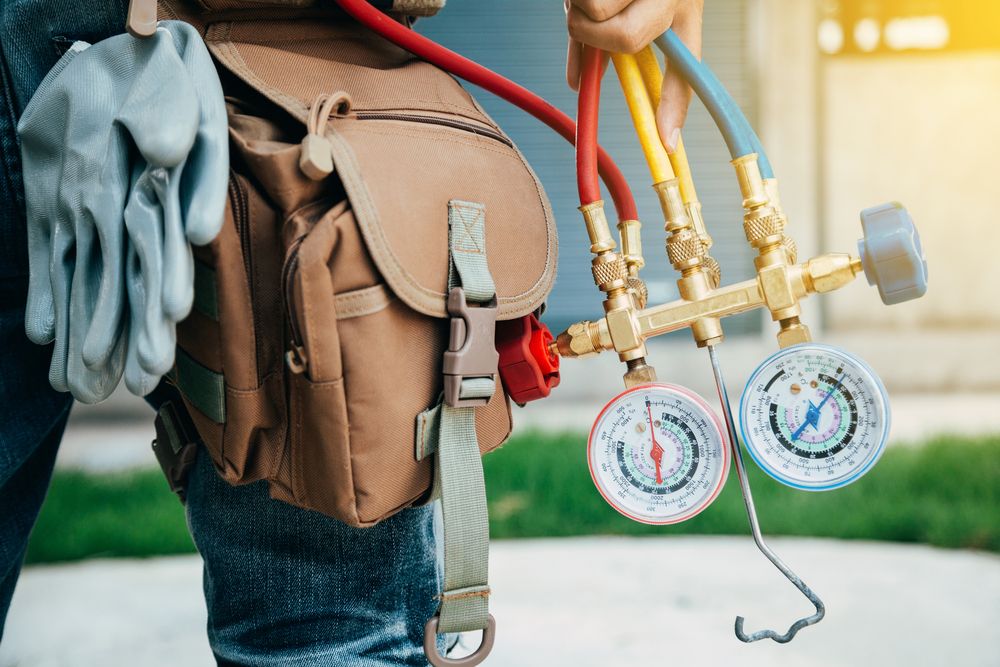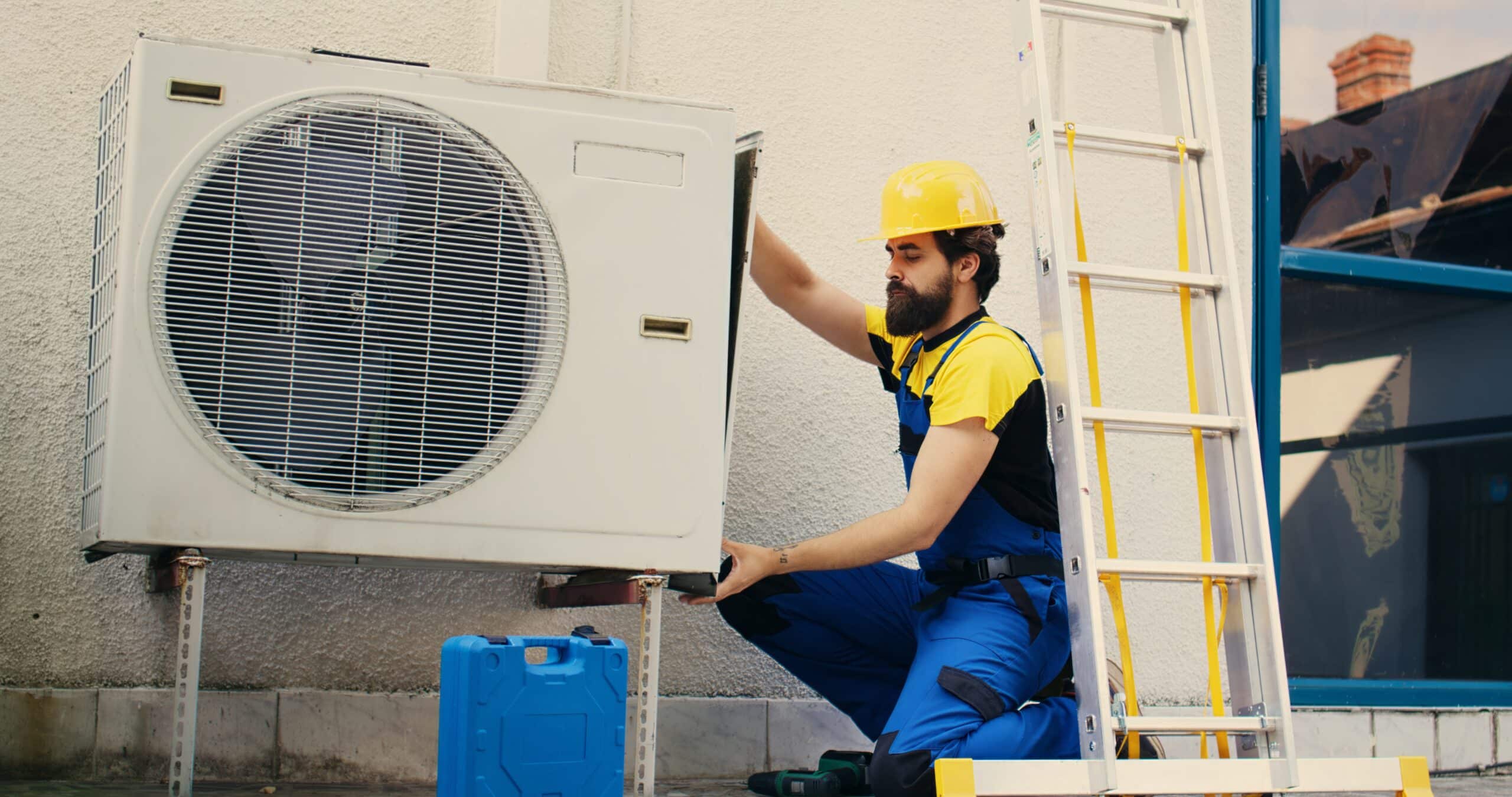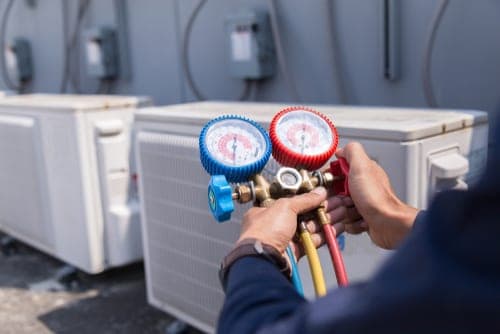Keep Your Home Ideal Year-Round with DMAKS HVAC Services.
Keep Your Home Ideal Year-Round with DMAKS HVAC Services.
Blog Article
Energy-Efficient Heating And Cooling Equipments to Conserve on Energy Costs
As power costs continue to climb, the value of energy-efficient Cooling and heating systems becomes significantly obvious. These systems not just assure significant financial savings on energy expenses but likewise contribute to an extra sustainable future by decreasing energy consumption.
Advantages of Energy-Efficient A/c Systems
Energy-efficient HVAC systems provide many benefits that extend past mere cost savings. By taking in much less energy, these systems add to decrease greenhouse gas exhausts, aiding to battle climate modification and promote sustainability.
Furthermore, energy-efficient cooling and heating systems often supply improved convenience degrees. A number of these systems include advanced technology that enables better temperature control and enhanced air high quality (DMAKS HVAC). This causes a much healthier interior atmosphere, which is specifically crucial for people with allergic reactions or respiratory concerns
In addition, spending in energy-efficient HVAC systems can boost residential property value. As more consumers prioritize power performance, homes and buildings furnished with these systems may attract greater proposals in the property market.
Kinds Of Energy-Efficient HVAC Options
Just how can home owners and organizations select the most ideal energy-efficient cooling and heating choices for their requirements? The marketplace uses a range of energy-efficient heating and cooling systems, each designed to boost comfort while reducing energy intake.
One choice is the variable refrigerant flow (VRF) system, which efficiently regulates the temperature in multiple areas within a structure. This system adjusts its refrigerant circulation to match the preferred temperature level, causing significant power cost savings.
Another popular choice is geothermal warmth pumps, which utilize the planet's stable temperature to warmth and trendy areas. By moving heat to and from the ground, these systems show remarkable efficiency, specifically in moderate environments.
In addition, ductless mini-split systems supply an energy-efficient alternative for homes lacking ductwork. These systems permit zone-specific cooling and heating, reducing energy waste in empty areas.
Finally, high-efficiency heaters and a/c, with advanced SEER and AFUE rankings, supply reliable climate control while consuming less energy than typical models. By examining these alternatives, property owners and companies can select a heating and cooling system customized to their specific needs and power efficiency goals.
Secret Attributes to Take Into Consideration

Following, examine the kind of compressor used in the system. DMAKS HVAC. Variable-speed compressors can change their output to match the home heating or cooling demand, resulting in improved comfort and energy savings contrasted to single-speed models. In addition, search for systems equipped with wise thermostats that provide programmable setups and remote access, permitting better control over energy usage
One more vital attribute is the system's air purification capacity. High-efficiency filters can enhance interior air high quality and minimize power usage by making certain the system operates efficiently. Furthermore, consider the kind of refrigerant utilized; modern-day systems usually use eco-friendly refrigerants that have a lower environmental effect.
Last but not least, make sure that the system is suitable this post with zoning innovation, which enables tailored temperature level control in various areas of your home, enhancing convenience while minimizing power use.
Tips for Picking the Right System


Following, take into consideration energy efficiency ratings, specifically the Seasonal Power Effectiveness Ratio (SEER) for cooling systems and the Yearly Gas Usage Performance (AFUE) for heating unit. Greater rankings show higher effectiveness, which can cause substantial savings on energy expenses in time.
Furthermore, evaluate the sort of heating and cooling system that finest fits your way of life and spending plan. Options include air conditioning, ductless mini-splits, and warm pumps, each with its very own set of benefits and downsides.
Do not ignore the significance of proper installation and sizing; an inaccurately sized system can bring about inadequacies and raised wear. Finally, talk to an expert cooling and heating service provider to acquire expert suggestions tailored to your home's special demands. This extensive approach will certainly make certain that you select an energy-efficient cooling and heating system that satisfies your needs and budget properly.
Maintenance for Optimal Efficiency
When the appropriate cooling and heating system remains in area, recurring upkeep ends up being key to making certain optimum efficiency and long life. A well-maintained system operates better, leading to lower energy usage and reduced utility costs. Regular evaluations and tune-ups need to be arranged at least twice a year-- as soon as before the cooling season and when before the home heating season.

House owners must also be attentive regarding checking their heating and cooling system's efficiency. Uncommon noises, fluctuating temperature levels, or boosted energy expenses can show underlying concerns that require prompt focus. By addressing these issues without delay, homeowners can prevent expensive Source repair services and extend the life-span of their systems.
Purchasing an upkeep strategy with a qualified service technician not only enhances effectiveness but also offers satisfaction, recognizing that the system is running at its ideal. DMAKS HVAC. Routine upkeep is therefore essential for maintaining power performance and reducing general operational prices
Conclusion
Finally, energy-efficient cooling and heating systems present a practical remedy for decreasing energy costs while enhancing comfort and air quality. By including sophisticated modern technologies and alternatives such as geothermal heatpump and ductless mini-splits, homeowner can attain considerable power financial savings and add view website to environmental sustainability. Careful consideration of system functions and recurring maintenance even more ensures ideal performance, making energy-efficient systems a prudent investment for both financial and ecological advantages.
Report this page